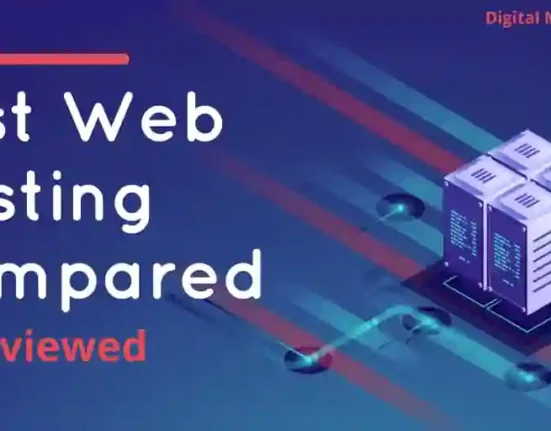The internet has transformed the way we access information and entertainment, transcending geographical boundaries. However, the concept of geo-restrictions still persists, limiting access to certain content based on one’s physical location. To overcome these restrictions and access websites like Tamilrockers, users often turn to proxy servers. In this article, we will explore the world of geo-restrictions, their implications, and how proxies enable global access to platforms like Tamilrockers.
The World of Geo-Restrictions
Geo-restrictions, often referred to as “geoblocking” or “geo-filtering,” are limitations placed on internet content or services based on a user’s geographical location. These restrictions are typically enforced to comply with licensing agreements, regional laws, and content distribution policies. The goal is to control the availability of specific content to users in designated regions or countries.
Geo-restrictions can manifest in various ways:
- Content Availability: Certain content, such as movies, TV shows, and sporting events, may be made available only in specific countries or regions. Users outside these areas are denied access.
- Pricing Differences: Online services, including streaming platforms and digital marketplaces, may charge different prices for the same content or services in different regions. Geo-restrictions are used to enforce these pricing disparities.
- Licensing Agreements: Content providers and creators often enter into licensing agreements that specify where their content can be shown or sold. Geo-restrictions ensure compliance with these agreements.
- Censorship: In some cases, governments employ geo-restrictions to censor specific websites or online content within their borders. This practice is often referred to as “internet censorship.”
- Data Protection and Privacy Laws: In compliance with data protection and privacy laws, companies may restrict access to their services based on users’ locations to ensure compliance with local regulations.
The Implications of Geo-Restrictions
Geo-restrictions can have significant implications for both content providers and users:
For Content Providers:
- Licensing Compliance: Content creators and distributors must adhere to licensing agreements, ensuring that their content is only accessible in authorized regions.
- Revenue Protection: Pricing disparities in different regions are often meant to maximize revenue. Geo-restrictions help protect revenue streams by preventing users from accessing content at lower prices from other countries.
- Compliance with Regulations: Geo-restrictions are used to comply with legal and regulatory requirements, including data protection and privacy laws.
For Users:
- Limited Access: Users in geo-restricted regions may have limited access to content, missing out on popular shows, movies, or services.
- Higher Costs: Users in regions with higher pricing may end up paying more for the same content or services compared to users in lower-priced regions.
- Censorship: In regions with strict censorship laws, geo-restrictions can prevent users from accessing information and websites deemed inappropriate or sensitive by authorities.
The Role of Proxies in Overcoming Geo-Restrictions
Proxies are intermediary servers that act as a bridge between a user’s device and the internet. When a user accesses a website through a proxy server, their requests are routed through the proxy before reaching the target site. This process effectively hides the user’s true IP address and location, making it appear as if the request is originating from the proxy server’s location.
How Proxies Enable Global Access
Proxies play a vital role in overcoming geo-restrictions and enabling global access to websites like Tamilrockers:
- Changing IP Address: By routing their traffic through a proxy server in a different country or region, users can acquire an IP address associated with that location. This allows them to appear as if they are browsing from the proxy server’s location, effectively bypassing geo-restrictions.
- Accessing Blocked Content: Proxies enable users to access content that is otherwise blocked in their region. This is particularly useful for bypassing censorship and gaining access to restricted websites.
- Pricing Disparities: Users can take advantage of proxies to access content or services at lower prices offered in specific regions. This is often referred to as “geo-arbitrage.”
- Enhanced Privacy: Proxies provide an additional layer of privacy and security by masking the user’s real IP address and location. This can help protect user data and identity.
- Streaming Services: Proxies are commonly used to access geo-restricted streaming platforms like Netflix, Hulu, and BBC iPlayer, allowing users to watch content available only in specific regions.
Legality and Ethics of Using Proxies
While proxies offer a solution to overcome geo-restrictions, their use raises questions about legality and ethics:
Legality:
The legality of using proxies to bypass geo-restrictions varies by region and country. In some cases, it may be considered a violation of the terms of service of a website or platform, but it might not necessarily be illegal. However, in certain situations, such as circumventing government censorship or engaging in copyright infringement, using proxies can have legal implications.
Ethics:
The ethical considerations surrounding proxy use are subjective and may depend on the user’s intent. Using proxies to access blocked information or evade censorship can be viewed as a means of promoting free access to information. However, using proxies to engage in unethical activities, such as piracy or illegal streaming, is widely condemned.
Conclusion
Geo-restrictions are a common practice on the internet, designed to control content availability, pricing, and compliance with regional regulations. While they serve various purposes for content providers and distributors, they can limit access and create pricing disparities for users.
Proxies offer a way to circumvent geo-restrictions and access content or services from anywhere in the world. However, the use of proxies raises legal and ethical questions, particularly when it comes to circumventing censorship or engaging in activities that violate copyright laws.
In the cat-and-mouse game between geo-restrictions and proxies, it is essential for users to exercise discretion, be aware of the legal and ethical implications, and use proxies responsibly and ethically. Ultimately, the balance between access, regulation, and privacy on the internet remains a complex and evolving issue.









